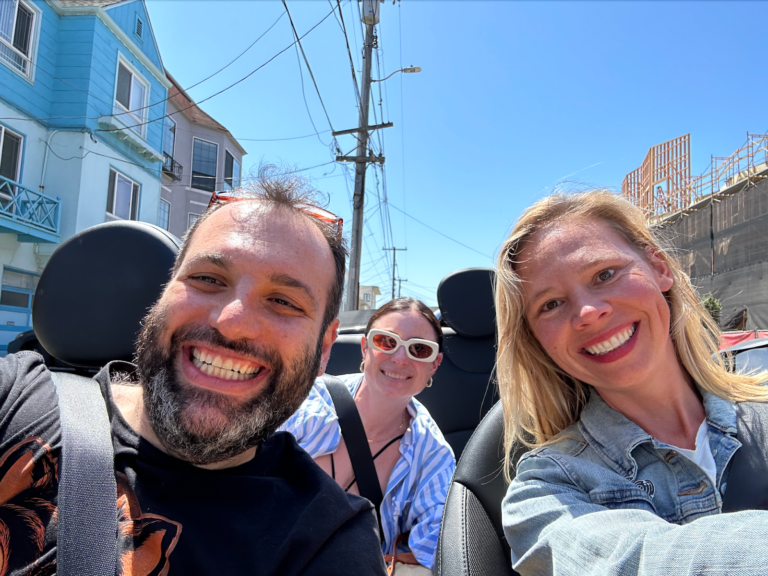What We Don’t Talk About When We Talk About Anxiety
 Author:
Simone Paget
Author:
Simone Paget
 Editor:
Patrick Nagle
Editor:
Patrick Nagle

It was 3:30 a.m., and I was lying in bed, wide awake, my chest pounding. I’d been staring at the ceiling for hours, and despite being exhausted, I was unable to stop the panic. Instead, it felt like a never-ending pinball game was being played in my brain, my thoughts racing.
I spent countless nights like this as a child and young adult, stricken with anxiety and feeling frustrated, ashamed, and powerless due to my mental health. While sleep issues were a constant, my anxiety spilled into every facet of my life. I desperately wanted to feel better but was also resigned to the fact that I’d likely always feel this way. Being anxious was simply part of my personality – or so I thought.
Everything changed when I was diagnosed with generalized anxiety and obsessive-compulsive disorder at age 31. Through therapy and medication, I discovered that I could not only feel better but thrive. I also learned that there is no shame in getting the help you need – especially when it means you get your life back.
I wish I could go back and tell my younger self that it doesn’t have to be this hard.
Hi, I’m Simone Paget. I’m a Senior Editor and Writer at MentalHealth.com. When not creating and shaping the content on MentalHealth.com, I contribute to and provide expert commentary for some of your favorite publications, including Insider, The Washington Post, The Toronto Sun, GQ, The New York Times, and Vice.
Twelve years ago, I underwent a radical mental health transformation after a lifetime of suffering in silence. As a professional storyteller, I now take every opportunity to use my voice and natural skillset to inform, advocate, and share my mental health journey. I hope that by opening up about my experiences, I can make other people feel less alone and inspire them to seek the help they need.
I can’t remember a time in my life when I didn’t struggle with anxiety.
I was an energetic, creative kid who never wanted to sleep. The idea of sleep – of losing control of my body, of slipping into an unconscious state – was terrifying to me as a child. Many nights, I would lie awake fearing that moment of letting go. There was always a reason to get out of bed: another glass of water, another trip to the bathroom, another opportunity to check to see whether my Mom had locked the front door. I’d do the same repetitive behaviors over and over again, unable to fully control my actions. Even as a child, I knew this wasn’t healthy. I just wanted to be a normal kid and felt a deep shame that I wasn’t.
Growing up in the 1980s, there wasn’t the same kind of mental health awareness that exists now. I excelled at school, so my parents assumed my behavior was a symptom of being “high-strung” and that eventually I’d grow out of it. Instead, when I left home at eighteen my anxiety issues followed me to college and my professional life.
What we don’t talk about when we talk about generalized anxiety and obsessive-compulsive disorder is how powerless these conditions can make you feel. In addition to many of the common symptoms of generalized anxiety disorder like anxious thoughts and difficulty sleeping, I also struggled with compulsive thoughts and behaviors associated with OCD.
I obsessively feared germs and contamination, avoided touching certain surfaces, and frequently felt unsafe in my home. I’d sometimes spend hours every night checking and re-checking doors, locks, and appliances; robbing myself of precious sleep. The more stressed I was in my daily life, the more uncontrollable my intrusive thoughts and compulsions became.

In adulthood, my anxiety reached a crescendo where I was plagued with insomnia and severe anxiety attacks multiple times a week. This wreaked havoc on my professional life, personal relationships, and overall well-being. After 30 years of experiencing some version of this, I was exhausted. I knew something had to give, yet part of me was scared – scared of what I might unearth if I went to therapy, scared of how the medication would affect me, scared that I might do all of those things and nothing would change.
It took the dissolution of a romantic relationship and a cross-country move for me to get help.
I started seeing a therapist and was prescribed medication that helped tremendously. While I recognize that medication isn’t for everyone, it was life-changing for me. For the first time in my life, I was sleeping with ease. The medication also helped with the intrusive thoughts and compulsions. Through medication and working with a therapist, I’m now able to recognize my intrusive thoughts and make different choices when they occur instead of resorting to compulsive behaviors.
With my anxiety lessened, I was able to work with my therapist to unpack and process the root causes of my anxiety. My concentration and focus increased, as did my self-esteem. After years of exasperation, panic, and sleeplessness, it felt like my brain was finally getting the vacation it deserved.
Over the next few years, I launched a professional writing career working with publications and brands, like MentalHealth.com that are making a difference in the world. That isn’t to say that I’m fully “healed.” I still experience moments of anxiety and depression, but now I have the proper tools to navigate them. I’ve learned that living well with a mental health condition isn’t an end point, but rather an ongoing lifelong process. It involves a combination of regular exercise, eating well, taking my medications, getting plenty of rest, and reaching out to my therapist whenever I need extra support.
I don’t believe in having regrets – everything I’ve experienced has brought me to the place I am today – but knowing how much better my life is now versus before my diagnosis, I wish I’d gotten help sooner.
Symptoms of obsessive-compulsive disorder often start in childhood. I can’t help but wonder how my life would have been different if my parents had access to more robust resources about childhood mental health conditions or if, as a busy young professional, I’d been able to discreetly book and attend online therapy from the comfort of my apartment.
Looking back at my mental health struggles, stigma, misinformation and lack of accessible resources prevented me from getting the help I needed. That’s why I’m honored to work with MentalHealth.com to help create the kind of supportive community I could have greatly benefited from as a young person.
Be the person you needed when you were younger. This phrase is written on a Post-it on the wall above my computer screen. It’s an ethos that I aim to embody.
As we move forward, know that this is just the beginning. At MentalHealth.com, we are just getting started—the best is yet to come!
-Simone
We are a health technology company that guides people toward self-understanding and connection. The platform provides reliable resources, accessible services, and nurturing communities. Its purpose is to educate, support, and empower people in their pursuit of well-being.
With over a decade of writing experience, Simone utilizes her personal experience with anxiety and natural writing talents to empower people in their pursuit of well-being.
Latest

Categories
- Opinion (137)

